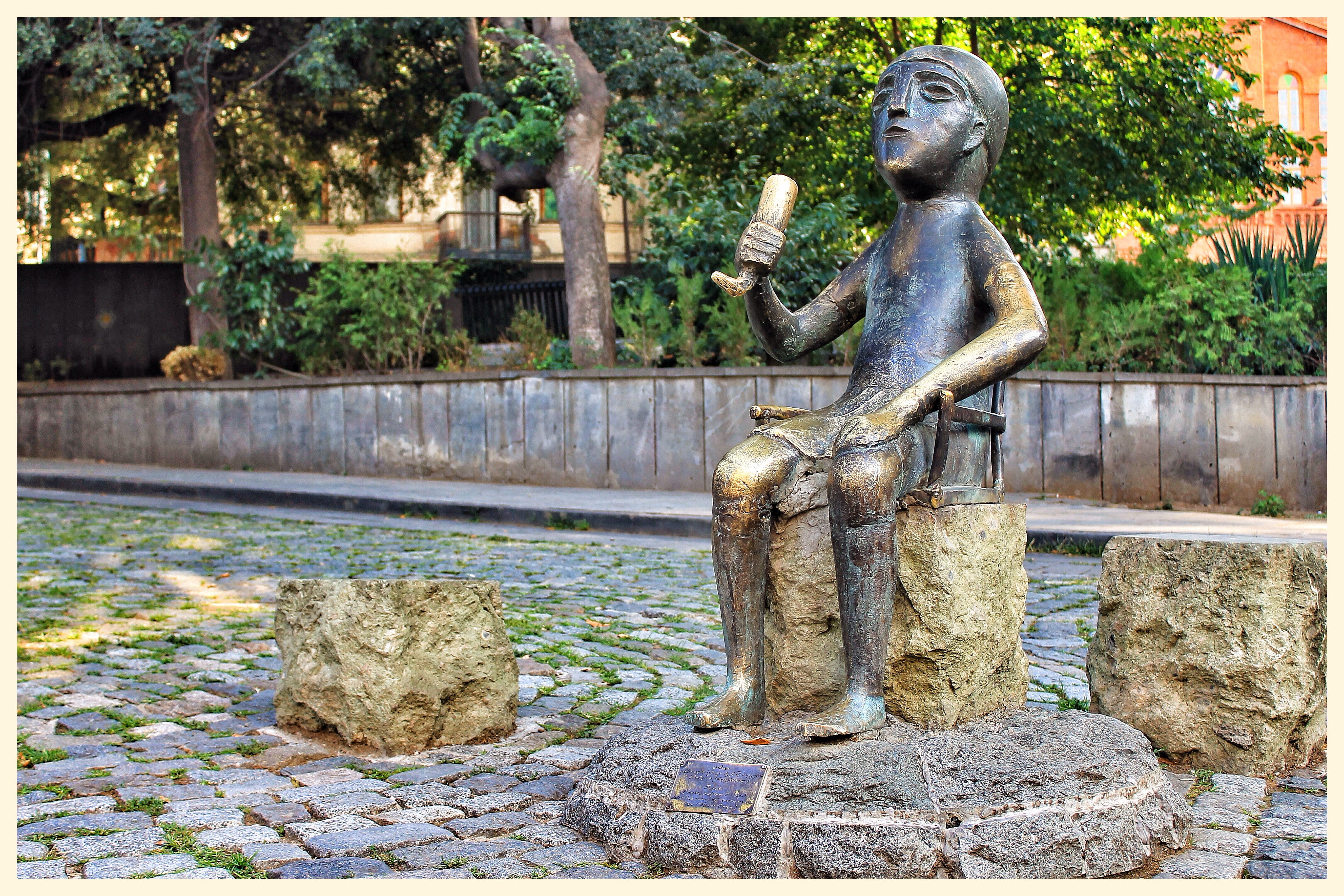|
Keipi
A Keipi ( ka, ქეიფი) or festivity ''supra'' is a traditional banquet feast in Georgia. History In ancient Georgia, a ''keipi'' would be held in the spring for all the village to attend. The women of the village would ensure that the food was constantly replenished as a ''tamada'', or toastmaster, gives a toast. Tradition would have that no one could touch their wine bowl until the toast was finished. Rules and habits In his book, ''Vintage: The Story of Wine'', Hugh Johnson notes that at some ''keipi'' there may be 20 or more toasts, with spaces between to ensure that no one gets overly intoxicated since the constant threat of invasion called for everyone in the village to be sober enough to fight. He goes on to mention that "''The Georgian custom is to drain the wine bowl, then throw away the last drops. They are the number of your enemies.''" Hugh Johnson, ''Vintage: The Story of Wine'' pg 15. Simon and Schuster 1989 A tamada arranges breaks from time to time. T ... [...More Info...] [...Related Items...] OR: [Wikipedia] [Google] [Baidu] |
Culture Of Georgia (country)
The culture of Georgia has evolved over the country's long history, providing it with a unique national identity and a strong literary tradition based on the Georgian language and alphabet. This strong sense of national identity has helped to preserve Georgian distinctiveness despite repeated periods of foreign occupation. Although Georgia is a largely traditional society, its culture continues to undergo changes in the 21st century. For example, Georgia is one of the first countries in the world to legalize cannabis for both recreational and medical use. Culture of Ancient and Old Georgia The Georgian alphabet is traditionally said to have been invented in the 3rd century BC and reformed by King Parnavaz I of Iberia in 284 BC. Most modern scholarship puts its origin date at some time in the 5th century AD, when the earliest examples can be found. Georgia's medieval culture was greatly influenced by Eastern Orthodox Christianity and the Georgian Orthodox and Apostolic Church, ... [...More Info...] [...Related Items...] OR: [Wikipedia] [Google] [Baidu] |
Pirosmani , Georgia
{{Disambiguation, surname ...
Pirosmani may refer to: *Niko Pirosmani (1862–1918), Georgian painter * ''Pirosmani'' (film), a 1969 Soviet biographical film about the painter *Pirosmani, an administrative unit of Dedoplistsqaro Municipality Dedoplistskaro or Dedoplistsqaro ( ka, დედოფლისწყაროს მუნიციპალიტეტი, 'Queen's spring') is a municipality of Georgia, in the region of Kakheti. Dedoplistskaro municipality is bordered on th ... [...More Info...] [...Related Items...] OR: [Wikipedia] [Google] [Baidu] |
Supra (feast)
A supra (Georgian: სუფრა ) is a traditional Georgian feast and a part of Georgian social culture. There are two types of supra: a festive supra (ლხინის სუფრა, ), called a ''keipi;'' and a sombre supra (ჭირის სუფრა, ), called a ''kelekhi'', which is always held after burials. The traditions of ''supra'', as an important part of Georgian social culture, were inscribed on the Intangible Cultural Heritage of Georgia list in 2017. Traditionally, and for many Georgians, up to the present, the foregrounded participants at a supra are men, with women relegated to secondary, supporting roles (especially as far as food preparation is concerned). Etymology In Georgian, "supra" literally means "table-cloth" and, over centuries, it has become essentially synonymous with feasts where a large table is ordinarily set. The word for "table-cloth" itself is likely related to the Persian word ''sofre'', although it does not have the same connota ... [...More Info...] [...Related Items...] OR: [Wikipedia] [Google] [Baidu] |
Georgia (country)
Georgia (, ; ) is a transcontinental country at the intersection of Eastern Europe and Western Asia. It is part of the Caucasus region, bounded by the Black Sea to the west, by Russia to the north and northeast, by Turkey to the southwest, by Armenia to the south, and by Azerbaijan to the southeast. The country covers an area of , and has a population of 3.7 million people. Tbilisi is its capital as well as its largest city, home to roughly a third of the Georgian population. During the classical era, several independent kingdoms became established in what is now Georgia, such as Colchis and Iberia. In the early 4th century, ethnic Georgians officially adopted Christianity, which contributed to the spiritual and political unification of the early Georgian states. In the Middle Ages, the unified Kingdom of Georgia emerged and reached its Golden Age during the reign of King David IV and Queen Tamar in the 12th and early 13th centuries. Thereafter, the kingdom decl ... [...More Info...] [...Related Items...] OR: [Wikipedia] [Google] [Baidu] |
Tamada
A tamada ( ka, თამადა) is a Georgian toastmaster at a Georgian ''supra'' (feast) or at a wedding, corresponding to the symposiarch at the Greek symposion or the thyle at the Anglo-Saxon sumbel. At all supras regardless of size, there is a tamada, or toastmaster, one person who introduces each toast. Georgians like to say that the tamada is dictator of the table, but it would be more appropriate to compare him to a leader or even a teacher. Tamada traditionally ought to be eloquent, intelligent, smart, sharp−witted and quick−thinking, with a good sense of humor since very often some of the guests might try to compete with him on the toast making. At the Georgian table, a tamada is considered to help bridge the gap between past, present and future, toasting ancestors and descendants as well as the other guests at the table. A toast can be proposed only by a tamada; the rest are to develop the idea. Some toasts take a traditional form; for example, for some toasts ... [...More Info...] [...Related Items...] OR: [Wikipedia] [Google] [Baidu] |
Toast (honor)
A toast is a ritual during which a drink is taken as an expression of honor or goodwill. The term may be applied to the person or thing so honored, the drink taken, or the verbal expression accompanying the drink. Thus, a person could be "the toast of the evening", for whom someone "proposes a toast" to congratulate and for whom a third person "toasts" in agreement. The ritual forms the basis of the literary and performance genre, of which Mark Twain's "To the Babies" is a well-known example. The toast as described in this article is rooted in Western culture, but certain cultures outside that sphere have their own traditions in which consuming a drink is connected with ideas of celebration and honor. While the physical and verbal ritual of the toast may be elaborate and formal, merely raising one's glass towards someone or something and then drinking is essentially a toast as well, the message being one of goodwill towards the person or thing indicated. History According to var ... [...More Info...] [...Related Items...] OR: [Wikipedia] [Google] [Baidu] |
Hugh Johnson (wine Writer)
Hugh Eric Allan Johnson (born 10 March 1939, in London) is an English journalist, author, editor, and expert on wine. He is considered the world's best-selling wine writer. A wine he tasted in 1964, a 1540 ''Steinwein'' from the German vineyard Würzburger Stein, is considered one of the oldest to have ever been tasted.G. Harding: ''"A Wine Miscellany"'', p. 22, Clarkson Potter Publishing, New York 2005 .H. Johnson: ''Vintage: The Story of Wine'', p. 284, Simon and Schuster 1989. . He is also a keen gardener, who has written books and columns on gardening for many years. Early life He was born the son of Guy F. Johnson CBE and Grace Kittel, educated at Rugby School and read English at King's College, Cambridge. Career Johnson became a member of the Cambridge University Wine and Food Society while an undergraduate in the 1950s. On describing his introduction to wine-tasting Johnson has recalled: Johnson has been writing about wine since 1960, was taken on as a feature write ... [...More Info...] [...Related Items...] OR: [Wikipedia] [Google] [Baidu] |
University Of California Press
The University of California Press, otherwise known as UC Press, is a publishing house associated with the University of California that engages in academic publishing. It was founded in 1893 to publish scholarly and scientific works by faculty of the University of California, established 25 years earlier in 1868, and has been officially headquartered at the university's flagship campus in Berkeley, California, since its inception. As the non-profit publishing arm of the University of California system, the UC Press is fully subsidized by the university and the State of California. A third of its authors are faculty members of the university. The press publishes over 250 new books and almost four dozen multi-issue journals annually, in the humanities, social sciences, and natural sciences, and maintains approximately 4,000 book titles in print. It is also the digital publisher of Collabra and Luminos open access (OA) initiatives. The University of California Press publishes in ... [...More Info...] [...Related Items...] OR: [Wikipedia] [Google] [Baidu] |
Kelekhi
A supra (Georgian: სუფრა ) is a traditional Georgian feast and a part of Georgian social culture. There are two types of supra: a festive supra (ლხინის სუფრა, ), called a ''keipi;'' and a sombre supra (ჭირის სუფრა, ), called a ''kelekhi'', which is always held after burials. The traditions of ''supra'', as an important part of Georgian social culture, were inscribed on the Intangible Cultural Heritage of Georgia list in 2017. Traditionally, and for many Georgians, up to the present, the foregrounded participants at a supra are men, with women relegated to secondary, supporting roles (especially as far as food preparation is concerned). Etymology In Georgian, "supra" literally means "table-cloth" and, over centuries, it has become essentially synonymous with feasts where a large table is ordinarily set. The word for "table-cloth" itself is likely related to the Persian word ''sofre'', although it does not have the same connota ... [...More Info...] [...Related Items...] OR: [Wikipedia] [Google] [Baidu] |

.jpg)



